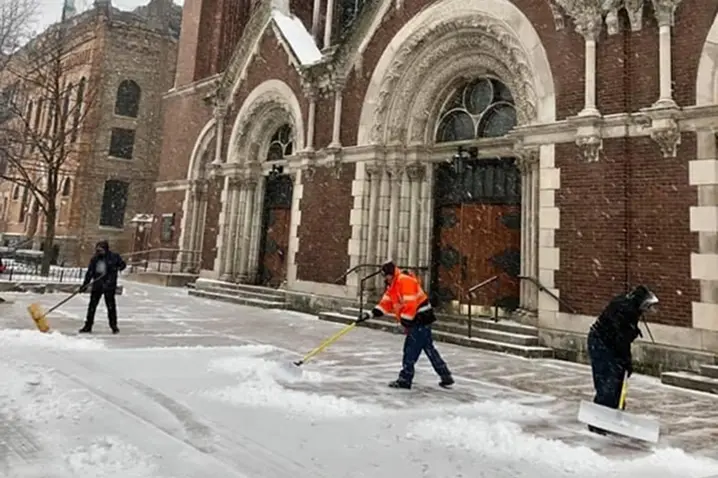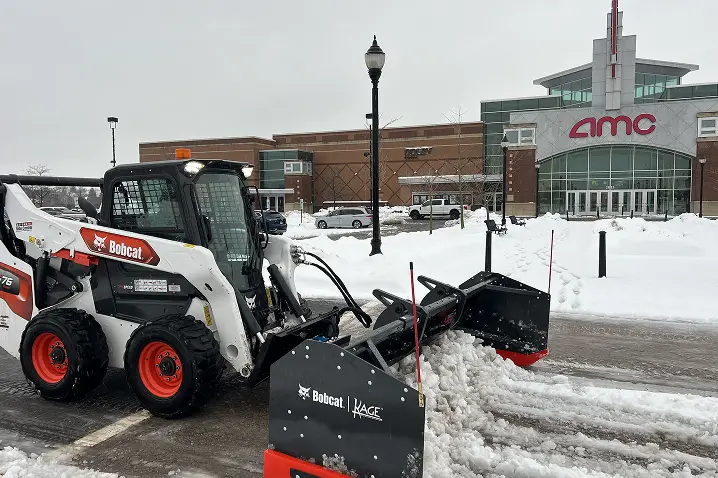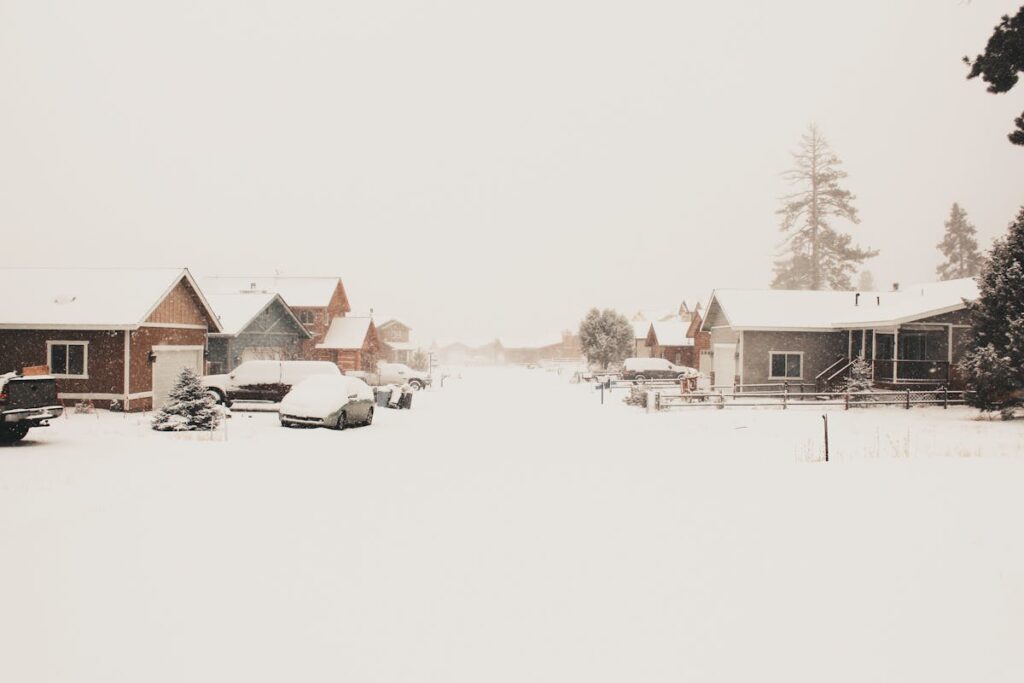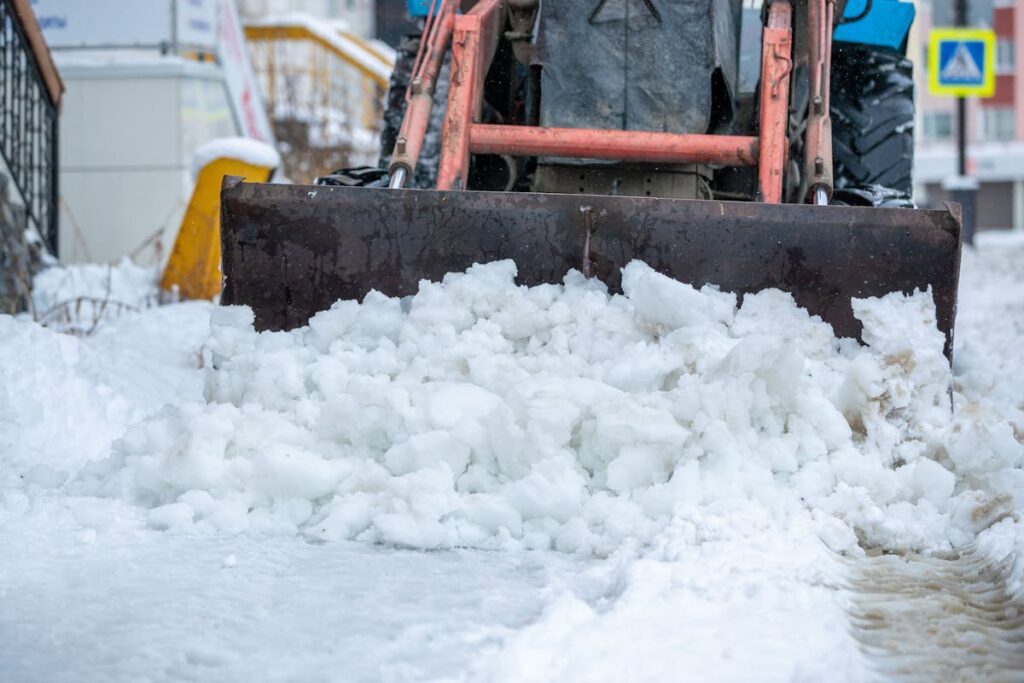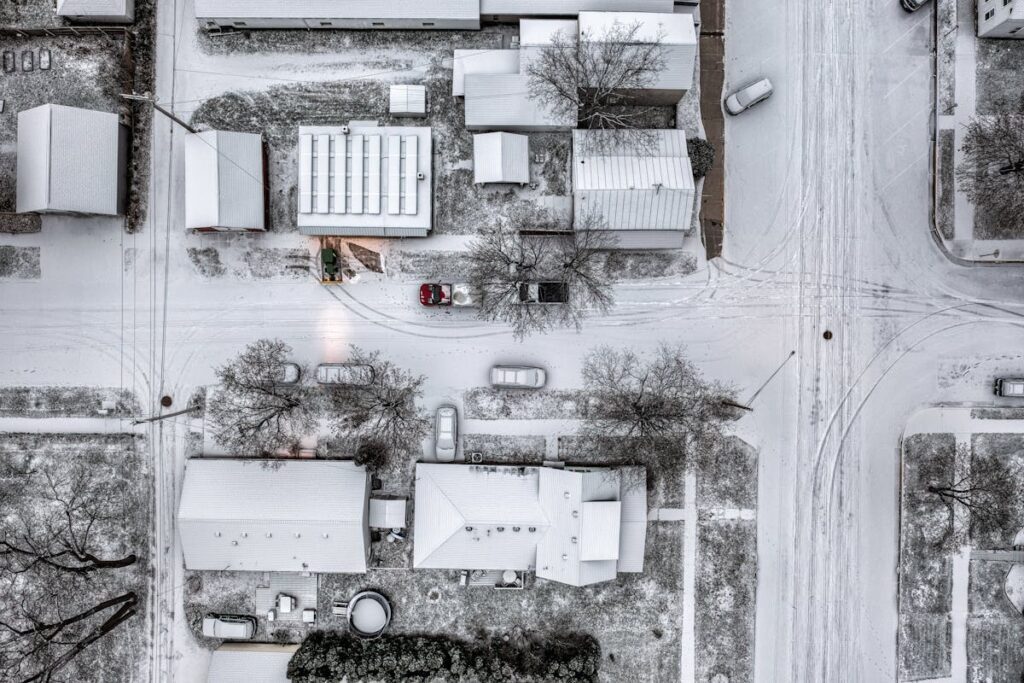Winter brings beautiful scenery, but it also puts a serious strain on your driveway. Snow and ice don’t just create slippery conditions; they can damage the structure of your driveway, shorten its lifespan, and make daily use a hassle. At Ware Landscaping, we know how brutal Midwest winters can be on outdoor surfaces. Understanding the impact of snow on your driveway—and knowing how to fix the problems it causes—is essential for maintaining both safety and curb appeal.
The Impact of Snow on Your Driveway
1. Freeze-Thaw Damage
When snow melts during the day and refreezes at night, water seeps into tiny cracks in your driveway’s surface. As it freezes, the water expands, widening those cracks. Over time, this cycle leads to potholes, surface crumbling, and serious structural issues.
2. Surface Erosion from Salt
Many homeowners rely on rock salt or de-icing chemicals to keep driveways safe. While effective at melting snow, salt can erode concrete and asphalt over time, weakening the surface and causing discoloration.
3. Stains and Residue
Snow mixed with dirt, salt, and vehicle fluids can leave unsightly stains on your driveway. Over the season, these residues build up, making your driveway look neglected.
4. Added Weight and Pressure
Heavy snow accumulation adds extra pressure to the driveway surface, particularly for asphalt. Combined with freezing temperatures, this can accelerate deterioration.
How to Fix Driveway Damage from Snow
1. Seal Cracks Early
The best way to prevent freeze-thaw damage is to seal small cracks before winter arrives. High-quality sealants keep water from seeping in, protecting your driveway through multiple winters.
2. Resurface or Reseal
If your driveway already has significant wear, resurfacing or resealing can provide a protective layer. This restores appearance, fills minor cracks, and prevents moisture penetration.
3. Install Proper Drainage
Poor drainage worsens snow-related damage. Ensure that melting snow flows away from your driveway instead of pooling on the surface. Adding trench drains, grading adjustments, or professional drainage systems can make a big difference.
4. Use Alternatives to Rock Salt
Consider eco-friendly de-icing products like calcium magnesium acetate, sand, or kitty litter. These options reduce slipperiness without corroding your driveway surface.
5. Pressure Wash and Clean
Once the snow season ends, pressure washing can remove salt, dirt, and grime. A professional cleaning prevents long-term stains and prepares the surface for resealing if needed.
6. Patch Potholes Quickly
If winter leaves behind potholes, repair them immediately. Leaving potholes untreated allows them to expand and makes resurfacing more expensive later.
Long-Term Solutions for a Stronger Driveway
- Asphalt Overlay: Applying a fresh asphalt layer can give new life to older driveways.
- Concrete Driveway Sealing: Protects against salt and water infiltration.
- Heated Driveway Systems: Though an investment, these systems melt snow on contact, eliminating shoveling and reducing freeze-thaw damage.
When to Call an Expert
While DIY maintenance like sealing cracks or applying eco-friendly de-icers is helpful, major repairs and drainage fixes should be handled by professionals. At Ware Landscaping, we specialize in driveway care and winter-proofing solutions. From installing drainage systems to repairing and resurfacing, our team ensures your driveway withstands harsh winters year after year.
Our Recent Work
Final Thoughts
Snow doesn’t have to spell disaster for your driveway. By addressing small problems early and investing in long-term solutions, you can protect your property, maintain curb appeal, and avoid expensive repairs. If your driveway is showing signs of winter wear, contact Ware Landscaping today. We’ll help restore and protect your driveway so it looks great and performs well no matter what winter throws at it.

